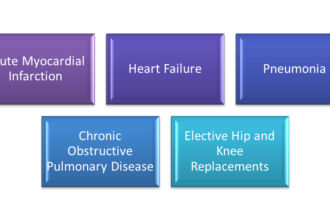by Christopher Purdy, Executive Vice President
While a surprisingly rekindled debate over contraception and women’s rights in the USA finds us facing questions we thought had been well put to bed twenty-five years ago, many parts of the world are embracing the internet and social media as new technologies that are appropriate to discussing and promoting contraception in ways that make the USA seem like an old fuddy-duddy.
by Christopher Purdy, Executive Vice President
While a surprisingly rekindled debate over contraception and women’s rights in the USA finds us facing questions we thought had been well put to bed twenty-five years ago, many parts of the world are embracing the internet and social media as new technologies that are appropriate to discussing and promoting contraception in ways that make the USA seem like an old fuddy-duddy.
In countries as diverse as Indonesia, Mozambique and Mexico, programs to promote family planning and HIV prevention are leveraging a range of digital platforms to get health information out to young people, break through cultural barriers and deliver innovative and sometimes risqué messages about product use and benefits.
 In Indonesia, a predominantly Muslim country of 230 million, the ‘Fiesta’ condom brand has used Facebook, Twitter and YouTube to talk about safe sex and condom use in a ways that might make some Americans blush. Animated videos include a couple on a motorcycle bouncing along the road to reveal that the bumps are large dots on a condom. The tagline: ‘Safety Can be Fun”. On the Twitter page, a recent sex tip reads: “Nicotine restricts penile blood flow and weakens erections”.
In Indonesia, a predominantly Muslim country of 230 million, the ‘Fiesta’ condom brand has used Facebook, Twitter and YouTube to talk about safe sex and condom use in a ways that might make some Americans blush. Animated videos include a couple on a motorcycle bouncing along the road to reveal that the bumps are large dots on a condom. The tagline: ‘Safety Can be Fun”. On the Twitter page, a recent sex tip reads: “Nicotine restricts penile blood flow and weakens erections”.
In Mozambique, a country where one in five women who want family planning can’t access it, DKT International has a Facebook page with more than 10,000 members. The platform answers questions posed by Mozambiquan women, provides information on appropriate contraceptive methods and has linked interested women to clinics where they can have an IUD inserted. Or, imagine ‘liking’ a Facebook page and receiving an invitation to have a hormonal implant inserted at a nearby health provider at a discount.
 In Brazil and Mexico, the ‘Prudence’ condom brand has been leading the charge to sexualize (and normalize) condom use – especially among young people – through diverse and aggressive use of technologies. Visiting the main website in Brazil provides a number of fun digital choices. The first is to join in as a condom tester, providing you and your partner a platform to comment on condom use and tag your location via GPS to show where you have recently used a condom. A sexologist provides regular blogs on topics both sweet and controversial. And of course, you can learn about condoms that have watermelon flavor or include a warming gel.
In Brazil and Mexico, the ‘Prudence’ condom brand has been leading the charge to sexualize (and normalize) condom use – especially among young people – through diverse and aggressive use of technologies. Visiting the main website in Brazil provides a number of fun digital choices. The first is to join in as a condom tester, providing you and your partner a platform to comment on condom use and tag your location via GPS to show where you have recently used a condom. A sexologist provides regular blogs on topics both sweet and controversial. And of course, you can learn about condoms that have watermelon flavor or include a warming gel.
Even in Ethiopia, with a population that is overwhelmingly poor and rural, the internet is playing a role to reach students with information on reproductive health. Young people can visit a website to access books and materials related to their studies, chat with each other and learn about contraceptive methods. More than 28,000 students have signed up and are interacting with the site.
Social and related digital media are satisfying a thirst for information on issues related to contraception, condoms and sexual health in a wide range of countries. The synergies are abundant. To start with, sexually oriented material and information are plentiful on the internet and draw many people into it; people are already looking for sexual stimulation through digital platforms, so reaching them when they are in such a state of mind is a natural step.
The internet provides a cover of anonymity that is important for many people, especially young people and those who live in more traditional or conservative societies. In the Philippines, which has a strong Catholic church vocally opposed to family planning, modern contraceptive use is 33.6%, much lower than in neighboring Indonesia and Vietnam. Young Filipino women, who have embraced mobile technology and social media, can access websites on family planning and choose from a wide range of social media sites as well to get their information.
In countries where online sales are an increasing reality, the availability of condoms and related products makes availability that much easier. In Turkey, DKT International has partnered with a popular online store to sell their condom brands, and these sales now constitute 10% of DKT’s total. Similar opportunities exist in Mexico.
We can be confident that emerging markets in the developing world will continue to innovate by leveraging the explosion of social media and digital platforms for the promotion of contraception and family planning and HIV/AIDS education. And one can hope that the USA and American consumers will catch up with the rest of the world. The issues are too important to ignore.
DKT International – “Social Marketing for a Better Life”
 About DKT International: DKT International is a Washington D.C. based social marketing organization and Bill and Melinda Gates Foundation grant recipient. It has been at the forefront of the effort to ensure “that all people have the opportunity to learn about contraceptives and have access to the full variety of methods.
About DKT International: DKT International is a Washington D.C. based social marketing organization and Bill and Melinda Gates Foundation grant recipient. It has been at the forefront of the effort to ensure “that all people have the opportunity to learn about contraceptives and have access to the full variety of methods.
Since 1989, the nonprofit organization has been promoting family planning and HIV/AIDS prevention through social marketing. DKT has 19 programs in 18 countries and in 2011 provided and sold 650 million condoms, more than 72 million cycles of oral contraceptives, and over 14 million injectable contraceptives, 1 million IUDs, and 12 million misoprostol pills. Last year, DKT efforts prevented 7 million pregnancies, 11,000 maternal deaths, and 1.4 million abortions.









